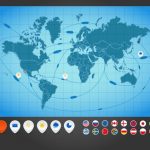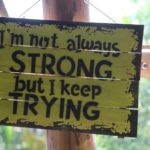There is never a bad excuse for wanting to take a trip. Travel is an exciting way to see the world and take a break from one’s everyday routine. However, travel is also an excellent educational tool for a variety of reasons. Even though schooling, books, the internet and other resources exist to educate individuals, travel is still one of the best forms of learning because it incorporates personal experience into the mix. Continue reading to discover a few of the educational benefits of travel.
You Learn History
It seems that no matter where you travel, you cannot escape a location’s history. Whether taking a weekend trip to Washington D.C., a holiday across the pond in London, or even a desert trip to Arizona, all these locations share a common trait: they all have a substantial amount of history. You’ll quickly find that this trait applies to all travel destinations around the world. We cannot escape the traces of our ancestors and the people who trekked the lands before us. However, this opens up educational opportunities wherever we go. Even though you may have learned about a historical event in history class, nothing beats actually visiting the land and seeing a landmark in person. Whether you traveled to an area to intentionally study history or not, the chances are that you’ll learn a mini-history lesson no matter where you travel.
You Learn New Talents
One of the best ways to experience a new culture is by taking a local class on your trip. This might look like taking a pasta-making class in Italy or learning how to take care of elephants in Cambodia. These experiences take you out of your comfort zone and grow your talents in new and exciting ways. This doesn’t mean you’ll return home making this a new hobby of yours, but it is a great way to learn new things in an immersive cultural class. This hands-on learning can often be more influential than textbook learning and will likely be a core memory for years to come.
You Learn New Languages
Traveling to new foreign countries gives you an excuse to learn new languages. This doesn’t mean that you’ll become fluent in various tongues, but knowing some basic phrases can help you get by in another country. Even though you might take a language course already, actually immersing yourself in the culture that speaks that language is a whole other story. In most cases, a language is best learned when you are placed in that culture and able to converse with others. Communicating with native speakers is a great way to put your skills to use and learn from them.










Leave a Reply